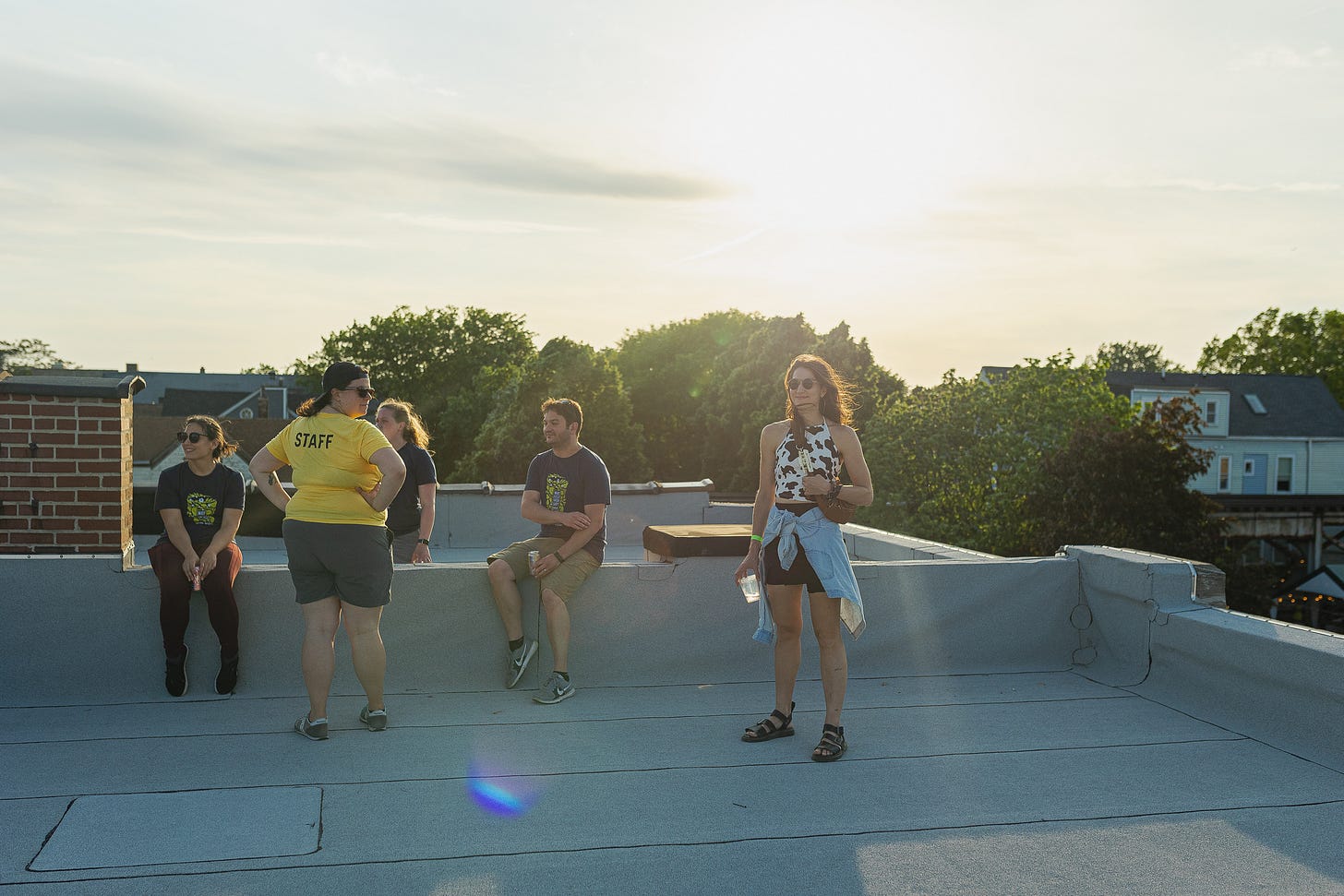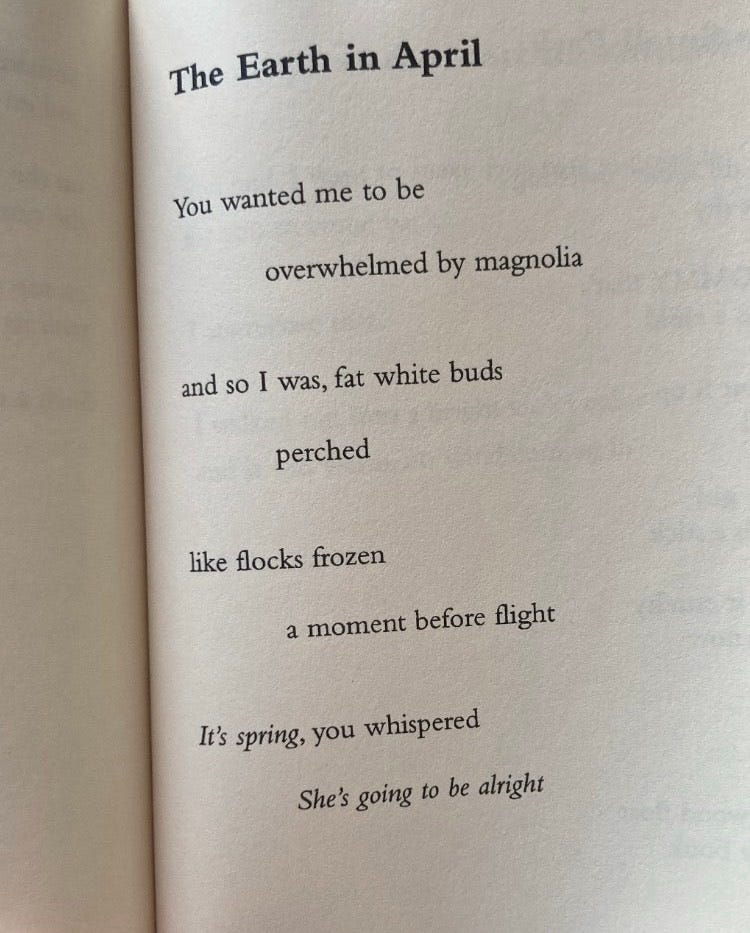seventy-second (2023-04-06)
“i want / to do with you what spring does with the cherry trees” ― pablo neruda, in twenty love poems and a song of despair
photo by steph byce from may 2022 | feeling brief today
poem (click here for my full list of poems on the docket for 2023)
Maggie Nelson, “The Earth in April”
i cheated and added this one to my list because it’s april and the phrase “she’s going to be alright” hits for me right now. this is from nelson’s collection of poems called the latest winter which is one of my favorite poetry books of all time.
books
pretend i’m dead: a novel by jen beagin, 2015
after loving big swiss, i was excited to read more by beagin. it’s fun to read authors’ work out of order because i see how much beagin has refined her prose in big swiss subsequent to this - which is not a dig because this was evocative, unpredictable, irreverent, funny, and full of grief. this also helped me identify one of my favorite themes in fiction, which is a narrator or protagonist who accurately diagnoses other characters’ oddities but is either ignorant to her own weirdness or, if aware, unable to stop being weird (gee, wonder why i relate to that).
love and trouble: a midlife reckoning by claire dederer, 2017
it feels a bit mean to critique someone’s personal memoir but i must be honest. this was described as “a ferocious, sexy, hilarious memoir about going off the rails at midlife and trying to reconcile the girl she was with the woman she has become.” i found it to be, in brief, none of those things. there were select moments of poignancy and self-reflection (what is it about the dawning of adolescence that strips girls of autonomy and trains us to be acted-upon?) cluttered by intense passivity that i found exhausting.
documentary
fantastic fungi on netflix, 2019
this reminded me of the hours upon hours i spent watching planet earth in college. the cinematography is stunning and the overall production is mesmerizing, even if you have barely a passing interest in mushrooms and fungi. the way the medical advances of psilocybin were touted felt more like an advertisement than a rigorous exploration, but the overall documentary was so compelling that i can’t be too critical.
articles
in the advent of increasingly sophisticated AI imagery, i’ve been thinking about the history of manipulated images and came across this. in making composite images of WWI rather than solely taking unadulterated photos, hurley sought to capture the true brutality and horror of war. the ethics of that choice have been debated for over 100 years and i won’t rehash that here, but the debates are prescient and timely in our new world of AI-generated art.
thanks for reading - more to come -
bria


